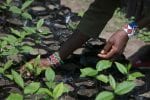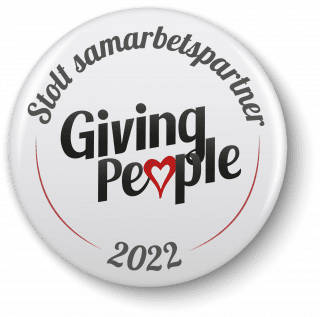Hiking with the Masai – feel like one with nature when you hike with your new friends from the Masai tribe very early in the morning – a completely different dimension of safari. After your safari experience, head on to Zanzibar, an exotic gem. Enjoy life and relaxed days on the beach or in your hammock!
Contact form

Ecorating: 4.0
This product meets our requirements for Ecorating, a product that is good for humans and the environment.
Does my trip make a difference?
Read more
This product meets our requirements for Ecorating, a product that is good for humans and the environment.
Sample Itinerary

You will be met on arrival in Nairobi and fly on from Wilson Domestic Airport to the Masai Mara. You land at the small airport in Naboishos, where your professional guides are waiting for you. Further journey to Wilderness Camp. On arrival you will receive a brief about the place and the area followed by check in and lunch. Enjoy your tent, grab a siesta, enjoy the beautiful view before it is safari time – now we have to look for elephants and lions! Return to camp at sunset for a sundowner, a delicious three-course dinner and relaxation by the fire. Accommodation in safari tent, Wilderness Camp

We get up early, get a cup of coffee or tea and some biscuits or similar while the sun rises, and after that time for a hiking safari with your guide. We start with a safety review and after that out into the morning fresh nature. Feel the clean morning air, experience how the savannah comes to life and how the scents of nature wake you up. After arriving at the camp, there is time for a well-deserved breakfast and relaxation. Afternoon safari, dinner and evening in the camp. Accommodation in safari tent, Wilderness Camp

Morning coffee with the rest of the camp guests or alone in your tent. Morning safari followed by lunch and check out for further journey to Eagle View, Mara Naboisho – a 26,000 hectare area with unique wildlife. Take a siesta or relax in the Safari Lounge, where you have an adventurous view of the water hole and the activities that take place in the area around the clock. The game between the different animal species is amazing to watch. You will get an introduction to the place followed by lunch. During the afternoon you will go on a safari which will extend a bit into the evening. Get close to nature and the wildlife. Return to the camp at the end of the day where dinner will be served. Spend the evening listening to the sounds of the night in the camp – the roar of the lions and the laughter of the hyenas. Accommodation Eagle View, Mara Naboisho.

Early morning safari where we see the sun rise. The safari is conducted in small groups, where trained Masai guides control the pace and direction. They are trained and certified according to the standards of the Kenya Professional Safari Guide Associations (KPSGA). After breakfast, visit the Koyiaki Guide School, a local school that trains Masai guides. Breakfast and siesta. During the afternoon we will go on another safari in the beautiful and diverse Mara Naboisho Conservancy. The day is rounded off with a sundowner out on the savannah. Going back to camp we do a night game, perhaps we get to see some of the nocturnal animals. Arrive back to camp in time for dinner. Accommodation Eagle View camp.

After breakfast we have to say goodbye to the savannah. You fly to Nairobi and onwards to the magical island of Zanzibar. Upon arrival you will be greeted by a representative from Matemwe Lodge. The lodge is located on the northeast side of the island. Matemwe is located on a coral cliff overlooking a chalk-white sandy beach, which quietly ends in the Indian Ocean. The atoll offers great opportunities for diving or snorkling. Delicious meals with freshly caught seafood, cocktails and fruits await you.

Matemwe’s quiet location and relaxed atmosphere make this the ultimate place to relax. Spend the day in the hammock, enjoy the spa or just do nothing. For the active, there are also opportunities for sports and action.

Spend the following days with activities such as kayaking, snorkeling, hiking or diving. Matemwe is a fishing village and the beach is used as a resource for the life of the local community. You will often meet people on the beach who have returned or are going on a fishing trip, or to collect seaweed.

Enjoy the last few hours before the trip goes home again!
Trip details
Accommodation: 4.5
When to travel:June – April
Airport: Nairobi Jomo Kenyatta (NBO) and Zanzibar (ZNZ)
Duration: 10 nights
The price includes: International flights, full board including selected drinks at Eagle View, share in double room, safari, hiking safari, transfer, visit to Talek Community, park tickets, round trip flight Nairobi- Masai Mara. Shared double room at Matemwe, full board, guided “reef walks” and village tours, canoe tour and airport transfer.
Price does not include: Travel insurance
Good to know about Kenya & Masai Mara: This is a large nature reserve in southwestern Kenya, and actually a continuation of the famous Serengeti National Park in Tanzania. The area got its name from the people who live in the area (Masai) and what they have for generations called the area: “Mara”, which in Masai language means “spotted”. A good description of a landscape where trees, shrubs, savannah and shadows from clouds form a “spotted” image.
Good to remember: In the Masai Mara, water is in short supply, so drink and use it with care and respect. The Masai are a proud people, always ask before you photograph. Bring notes in smaller denominations to be able to buy local crafts and the like in the small communities. How to greet the people you meet? In the same way that we in the Western world do – you take hands.
Mobile coverage and internet: The hotel has internet and mobile coverage is good. However, it is a wish of the management that you prefer to turn off the mobile, or use it discreetly.
Time zone: GMT + 3
Vaccinations: Read more about which vaccinations to use, for example hereStatens Serum Institut
Packing: On safaris in the Masai Mara you are often 1,300 – 1,500 meters above sea level, and both in the morning, in the evening and at night it can be quite cold. Bring a good sweater and windbreaker, good shoes for walking in
Bring a small backpack to be able to bring water, binoculars, camera or other personal belongings on the excursions. We recommend soft rather than hard travel bags – they are easier to transport along the way, so a backpack or similar is a good choice. Mosquito nets are available on site, but feel free to bring mosquito spray or similar.
Local currency: Kenyan Shilling
Observer: Kenya has banned plastic bags and this is checked by customs. If you bring a plastic bag, this can mean a fine.
Weather right now: Weather Masai Mara
Water:
Security: The Masai Mara is an extremely safe area. In the capital Nairobi, however, do not go alone in some places – this is especially true in the city center.
More information can be found hereRejsevejledninger på um.dk
Good to know about Zanzibar:
Travel Ethics: Cover your shoulders and knees when visiting a city. On the beach or on a boat, the bikini is of course perfectly fine.
Time zone: GMT + 3
Vaccinations: Read more about which vaccinations to use, for example hereStatens Serum Institut
Packing: Sunglasses, sun hat, sunscreen and preferably a flashlight.
Local currency: Tanzanian Shilling
Weather: Zanzibar on dmi.dk
Mobile network and email: Internet access at the hotel
Water: Buy bottled water, remember to sort your waste
Security: Zanzibar is safe for tourists.
Travel entry requirements: : All travelers to Kenya must apply for and be approved for an Electronic Travel Authorization (eTA) to visit the country. Click on the link below and follow their instructions (Applicants should have their passport and travel information and payment card ready). The price is 35 USD per person including children. If you are a family traveling, you can apply together. Apply no later than 3 weeks before departure. Se mer här: Electronic Travel Authorisation (eTA)

Ecorating: 4.0
This product meets our requirements for Ecorating, a product that is good for humans and the environment.
Does my trip make a difference?
Read more
This product meets our requirements for Ecorating, a product that is good for humans and the environment.
Basecamp, Masai Mara & Naboisho, Kenya:
Your trip means that Basecamp Masai Mara can further invest in the best and most environmentally friendly and high-tech solutions. All electricity for heating, water technology, water heating and lighting comes from solar panels. Closed septic tanks are used for the toilets. All waste is sorted and materials are recycled and recycled from here as long as is practically possible. All organic waste is composted and used to improve the soil at the camp – including in Obama’s tree plantation. Water for the plantation comes from wastewater from baths, dishes and laundry. This water can easily be used for the purpose, as you only use environmentally friendly soap, dishwashing detergent and washing powder on site.
Basecamp offers experiences that are quite different, compared to other safari camps / hotels. In addition to classic jeep safaris, you can meet the women from BMB, which is a local art project, get to know the local community and hike with the local “Big Cat Scouts”.
Many of the adventures you will experience happen on foot along with guides from the Masai people. You will gain a deeper understanding of the conditions of life in this part of Africa, the culture and how to look at nature here.
Your trip contributes to the local economy, as 85% of the employees at Basecamp come from the local area. The camp invests in social programs to improve the area’s water supply, health, education, culture and then not least has started a store where local women produce and sell traditional Masai jewelry.
Nature is the community’s greatest resource, so great emphasis is placed on preserving and protecting it. They work actively with tree erection, and run a nursery where over 50,000 new trees have been planted over the years – that is equivalent to about 20 hectares!
Your visit here also supports the camp’s project “Big Five”, a project focusing on nature, environment and health. Among other things, they have helped to drill for water, help residents with HIV / AIDS, they support the guide school Koiyiaki and “The Big Cat Conservation Program”.
The Mara Naboisho Conservancy has recently started a project that focuses on protecting a 26,000-hectare wilderness area, owned by a total of 500 owners. One will support a model where one jointly preserves and develops the area, so that tourism not only provides cash benefits now, but will continue to be a key part of the area’s economy – something that can only happen if one treats the area with respect for both nature and not least for the animals.
Awards, certifications and memberships:
Basecamp Explorer Kenya – Silver winner in the category for Best Responsible Cultural Experience at the African Responsible Tourism Awards 2018
Green World Award 2017 – Basecamp Explorer Kenya
Green Apple Award Gold Winner 2016 – Basecamp Masai Mara Forestation project
Overall Winner African Responsible Tourism Award 2016 – Naboisho Conservancy / Eagle View
Best Community Conservancy – Eco warrior Award 2015, Naboisho Conservancy / Eagle View
Basecamp Masai Mara – SKÅL Sustainable Tourism Award 2015
Basecamp Masai Mara – Gold Eco rated by EcoTourism Kenya 2010
Basecamp Masai Mara – SKAL International 2009 – best eco hotel in the world
Basecamp Masai Mara – Gold Eco rated by EcoTourism Kenya 2008
Basecamp Masai Mara – one of 50 Top Ecolodges in the world, National Geographic
Basecamp Masai Mara – First Choice Responsible Tourism Award 2005
Basecamp Masai Mara – Eco Warrior Award 2005
Matemwe Lodge, Zanzibar: >
Asilia’s camps and lodges are run by an organization that has been a bit of a pioneer in terms of sustainability and consideration for the globe and the animals and plants that have the globe as their home.
This organization supports 14 different schools in the different neighbourhoods of the camps.
Other projects supported include the Mara Cheetah project, the Mara Lion project, the Serengeti Cheetah & Lion project, The African People & Wildlife fund, Ruaha carnivore project, Children Concern Foundation Orphanage, Koiyaki Guiding School, Mara Naboisho Conservancy.
Asilia has received various international awards in various fields, and alla camper and Lodges conducts its business in a sustainable and ecological way. The goal is to minimize your CO2 emissions as much as possible.





